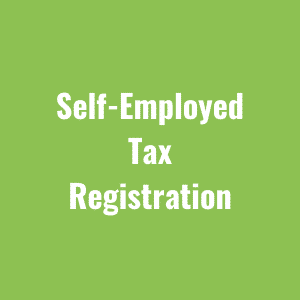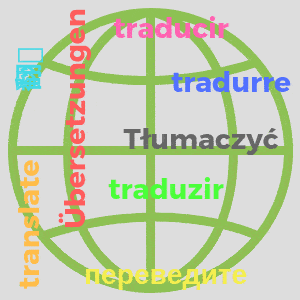Guide for EU/EEA/Swiss citizens moving to Germany
(not suitable for citizens from third-party countries)
Last update: November 2021
Here below are the steps to follow if you want to live in Germany and are free to move inside the EU without a visa
Where do you come from?
As an EU citizen, you can live, work and study in Germany without any visa or permit restrictions
As a citizen from Norway (EEA member state) or Liechtenstein (EEA), you can also live, work and study in Germany without any visa or permit restriction.
Citizens from Iceland (EEA) & Swiss nationals can also live, work and study in Germany without applying for a visa but, once in Germany, they may apply for a residence permit at the Ausländerbehörde in their town of residence.
If you are a citizen from a third-party country, the below guide isn't for you. Read these 10 steps to sorting your German paperwork instead;
Important: we recommend you check these visa requirements before you take any further steps;
More details about visas for Germany.
What's next?
7 Steps to live in Germany
Look for a place to live
Your options are: Students halls of residence, Shared flats (Wohngemeinschaft – WG) or Private apartments.
More info: Apartment Listing Sites for Germany.
If you are looking for a furnished flat, use this free search engine for furnished apartments.
If you are looking for a furnished flat, use this free search engine for furnished apartments.
Bürgeramt Registration:
By law, you are required to register your residence at a local citizens office (called Einwohnermeldeamt, Einwohnermeldebehörde, Bürgerbüro or Bürgeramt). You have to register within 14 days of relocating to your new German address. Everyone living in Germany, even if temporarily, has the obligation to register/re-register at one of the many Bürgerämter.
If you are staying in a hostel and have not found a permanent residence yet, it is sometimes possible to register with your hostel address. Ask your hotel for further details.
You will need to provide the Bürgeramt official with a valid ID or passport, the 'Landlord Confirmation Letter' and, sometimes, the lease or sublet contract. At the end of the process, you will get proof of registration (called Meldebestätigung or Meldebescheinigung) from the Bürgeramt official. Do not lose this important document as you will need it, for instance, to open a bank account.
When to de-register?
Only when you move abroad or move from a secondary residence back to the main dwelling.
More info: the Anmeldung process explained.
You are now allowed to work or study in Germany!
Looking for a job? Here is a Job Listing Sites for Germany.
German Health Insurance
While your overseas travel insurance was sufficient until you reached Germany, German insurance is mandatory while in the country. You cannot work or be enrolled at the university unless you have German insurance. You need to apply for health insurance after registering your address in Germany.
There are two kinds of health insurance: Public (mainly for employees and students) and Private (for everyone, incl. freelancers).
If you are a resident in the EU, you should apply for your EHIC (European Health Insurance Card) before travelling to other European Union Member States. The EHIC is valid for holidaymakers and temporary visitors who need to use the state health system while in another EU country.
If you are working as an employee and earn more than 64,350€ per year (in 2021), you are free to choose between private and public health insurance. Please check with an independent insurance adviser about the different possibilities.
If you are working as an employee and earn less than 64,350€ per year, you must take out public health insurance. You don't have a choice. You can sign up with TK now! TK is the largest and most popular public health insurance fund in Germany.
If you want to enrol at a university, your next step will be to obtain German health insurance. If you are under the age of 30, public health insurance is probably your only solution. Sign up for public health insurance here.
If you work as a freelancer or are self-employed, you can choose between public and private health insurance. What's better here depends on your situation: salary, age, pre-existing conditions, co-insurance of a family member, and so on. Please check with an independent insurance adviser about the different possibilities.
More details: the German health insurance explained.
Tax ID & Tax Number
Tax ID
The German tax authority will send the tax ID (IdNr.) automatically to your registered German address within 2-3 weeks after you've done your Bürgeramt registration.
As an employee, you will have to provide your employer with your tax ID before the start of a new calendar year or at the time you begin a new employment.
In case you've lost your tax ID, you would have to fill in the online form on our website:
>>Tax ID Retrieval<<
Tax Number (for freelancers)
If you want to work as a freelancer, you need to apply for a German tax number (Steuernummer).
An easy and quick solution to get your tax number and become a freelancer in Germany would be to use the services of this company. If you do not understand German, you can fill in for FREE the freelancer application form (Fragebogen zur steuerlichen Erfassung) online and in English. Once you are ready, they will take care of submitting it directly to the Finanzamt through the official ELSTER interface.
Open a Bank Account
You can open a bank account for free with N26 which includes a Free Mastercard. You can open your account online now. You do not need the Anmeldung!
Alternatively, if you speak German and do not mind paying fees, you can just search for a bank near you and enter during opening hours.
In this article, you can find a comparison of the most popular bank accounts in Germany.
Integration: It's time to learn German!
Yep, this is the hardest part. Eventually, you will have to start, even if you don't need it during your work or your studies. Now the question is: How long can you stay without needing German? :-p
German Test for the university: TestDaf explained.





























